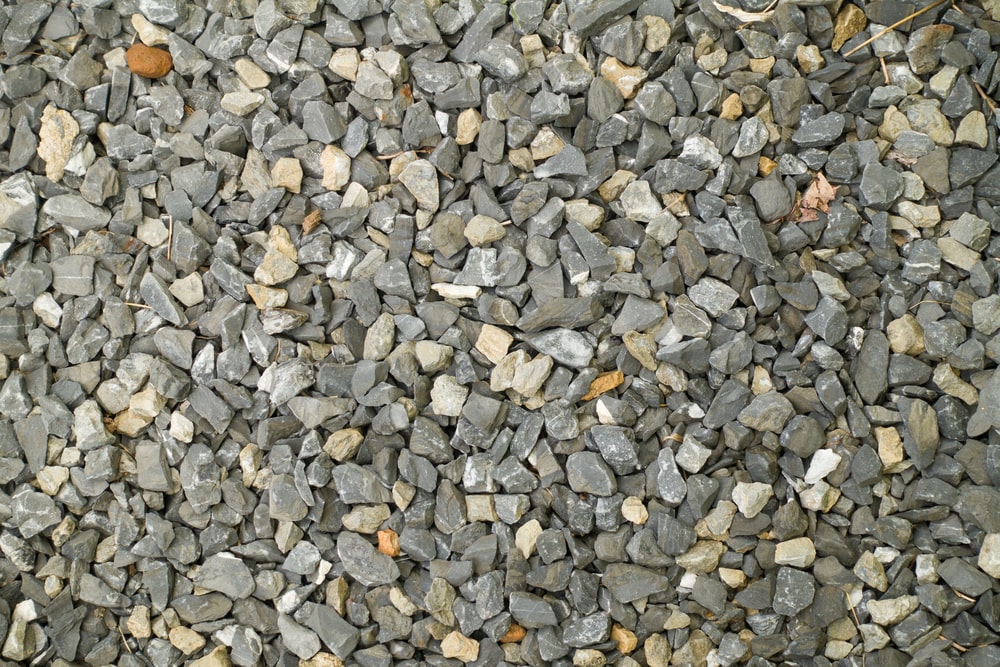
A solid base is crucial for a concrete driveway.
In Cincinnati, John decided to replace his old driveway with a concrete one, aiming for longevity and minimal maintenance.
After extensive research, he discovered that using the right base material could make all the difference in preventing cracks and ensuring durability. John learned that even the slightest mistake in the base layer could lead to costly repairs down the road.
Gravel was the key.
What is the best base for a concrete driveway?
In any concrete construction, gravel generally is considered the best prep and base layer. This means using the best base materials for concrete driveways to ensure optimum performance.
Properly constructing your base is the most crucial step you can take for a durable concrete driveway. By using a gravel base, it provides excellent drainage and prevents moisture from accumulating, which can lead to cracking. Investing the effort in laying a gravel base can ensure a smooth and long-lasting driveway.
How to properly compact the base
Properly compacting a gravel base is essential, ensuring a firm foundation. A well-compacted base prevents uneven settling and provides robust support for the concrete driveway above.
To achieve optimal compaction, employ a “forward plate compactor.” This equipment efficiently compresses the gravel, creating a stable base that minimizes future soil movement.
A well-compacted base ensures the longevity and durability of your concrete driveway.
After compacting the gravel base, verify the uniformity of the layer. It should remain even and consistent in thickness to evenly support the concrete driveway. Taking these steps ensures a resilient and smoothly finished surface.
How much gravel base do you need for a concrete driveway?
Determining the appropriate amount of gravel is essential for the longevity and durability of your concrete driveway.
Typically, the general rule is to have a gravel base that measures between 4 to 6 inches deep. However, this can vary depending on the specific needs of the driveway.
Measure the length and width of your driveway space in yards. Then, multiply these dimensions by the depth of the gravel base to find the volume required in cubic yards.
For heavier vehicles, you might consider a deeper base, extending up to 12 inches to ensure sufficient support and stability.
Properly calculating and laying the gravel base will make sure your concrete driveway in Cincinnati remains intact and resilient.
Can you use anything else as a base for concrete driveway?
Yes, aside from gravel, there are alternative bases that can be used beneath concrete driveways with varying results and considerations.
One alternative is crushed stone, which offers excellent durability and compaction properties. Crushed stone is similar to gravel but provides even better stability due to its angular shape, which locks the pieces together more effectively. This base is also effective in ensuring proper drainage, helping prevent moisture accumulation under the concrete.
However, materials like recycled concrete or asphalt millings can also serve as a base for concrete driveways. Recycled concrete aggregates, created from broken down concrete structures, can offer a sustainable option that reduces environmental impact. Similarly, asphalt millings can create a stable and compactive base by recycling old roadway materials.
Nevertheless, each alternative material has its own characteristics and limitations. For instance, while recycled materials are environmentally friendly, they may not provide the same level of performance as natural gravel. Therefore, it is important to evaluate the specific needs of your project and consult with professionals to determine the most suitable base material.
Why does a concrete driveway need a base?
A concrete driveway needs a base to ensure its long-term durability, stability, and performance. Without a proper base, a concrete driveway is prone to a multitude of issues that can compromise its integrity and necessitate costly repairs.
One of the primary reasons is to prevent soil shifting. When soil moves beneath your driveway, it causes cracks and structural damage.
Furthermore, a gravel base allows for better drainage. Moisture trapped within the concrete can lead to cracking and erosion over time.
A well-compacted base layer helps distribute the load of vehicles evenly. This prevents any localized stress points which could result in premature failure of the concrete surface.
Additionally, a gravel base acts as a buffer. It mitigates the impact of seasonal temperature changes, thereby preventing the freeze-thaw cycle from damaging the driveway.
Ultimately, the base is crucial for ensuring your driveway’s longevity. Properly setting up this foundation guarantees that your investment remains robust and attractive for years to come.
How to find a contractor for a concrete driveway?
Finding the right contractor can seem daunting at first.
Research online to read reviews and check ratings. Look for contractors who have experience in concrete driveway installations, particularly in the Cincinnati area, where local nuances can impact the work. Additionally, request to see a portfolio of previous projects to gauge their quality.
Ask for recommendations from trusted sources.
Contact multiple contractors to get quotes – not only for the price but also to understand different approaches and timelines they propose. This can help reveal who has a thorough understanding of the job.
Finally, verify licenses and insurance to ensure you’re working with reputable professionals. Don’t hesitate to ask for references and reach out to past clients. This due diligence will provide peace of mind, guaranteeing a well-executed driveway project.
In conclusion, constructing a concrete driveway in Cincinnati requires careful consideration of the base material to ensure durability and longevity. Gravel stands out as the optimal choice due to its excellent drainage properties and ability to provide a stable foundation. By properly preparing the soil subgrade and compacting a gravel base, homeowners can prevent common issues such as cracking and shifting. Investing in the right base material not only enhances the structural integrity of the driveway but also extends its lifespan, making it a wise decision for any concrete driveway project.
